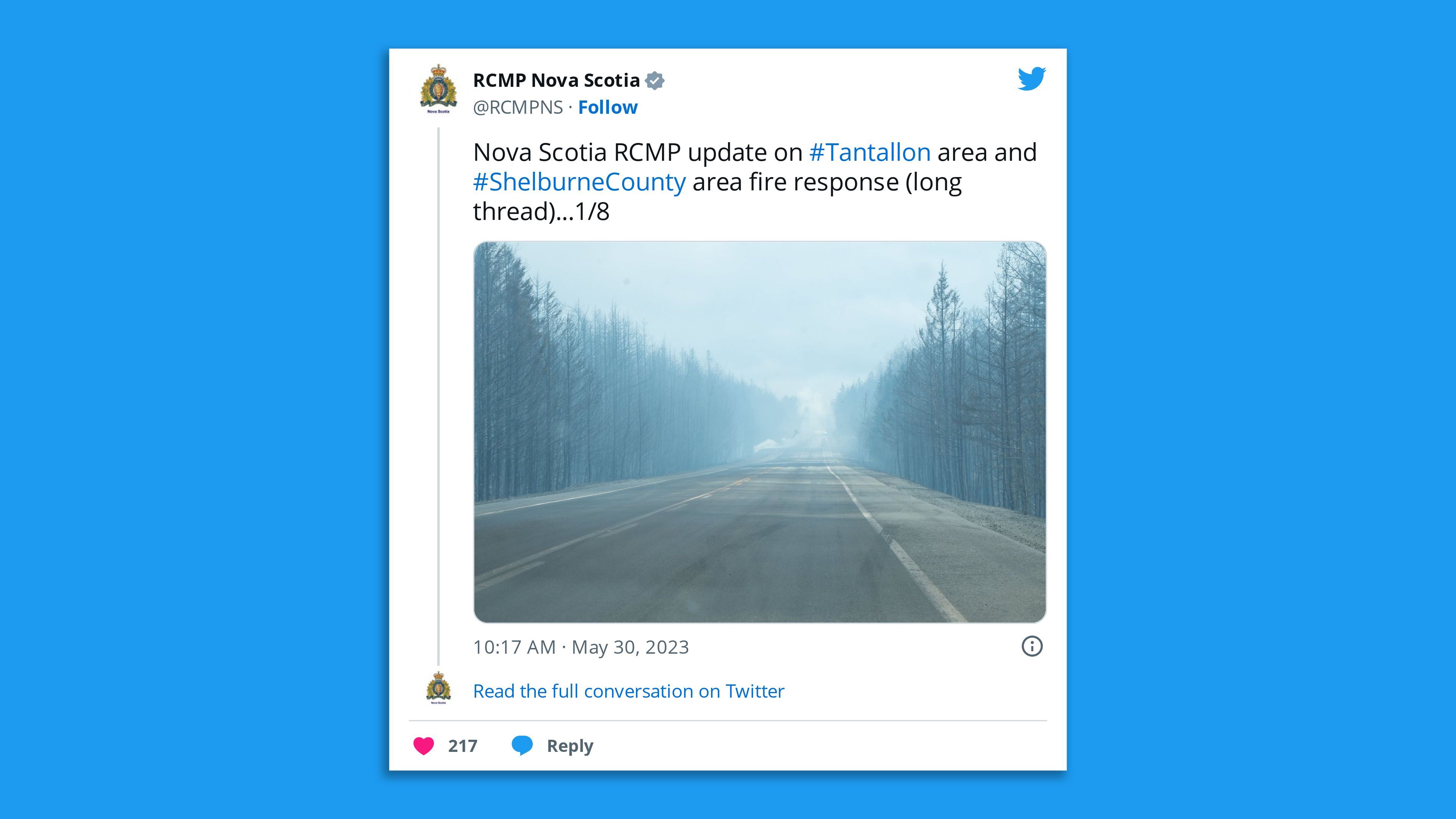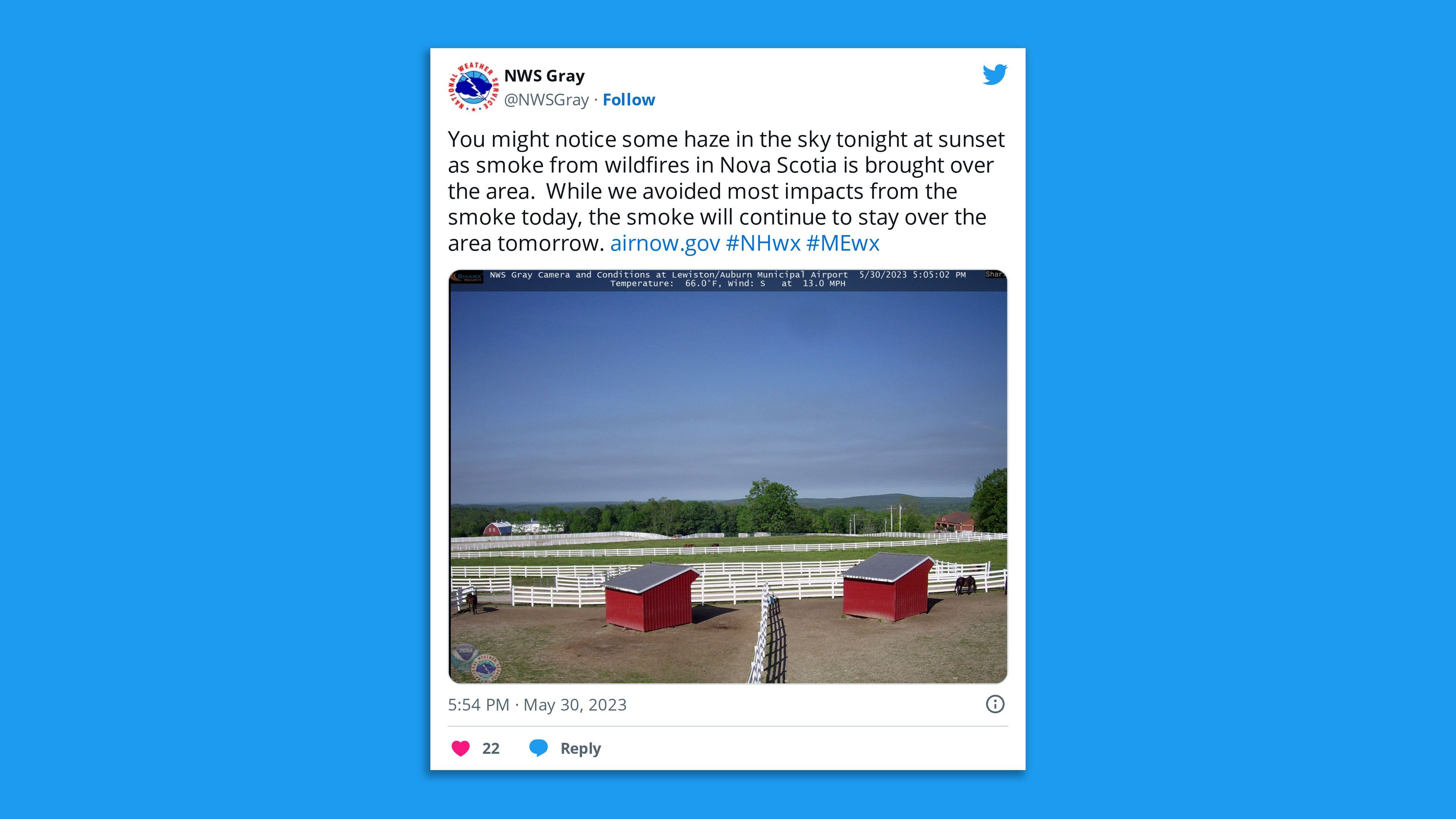Plumes of smoke from wildfires scorching southeastern Canada's Nova Scotia province are drifting across the Northeastern U.S. and prompting air quality alerts in several cities through Wednesday.
The big picture: Fires have been burning in Canada for weeks, as much of the country experiences above-average temperatures and while it's not unusual for Canadian wildfire smoke to reach the U.S., it's normally Northwestern states that are affected.

- Studies show climate change is leading to larger, more intense and frequent wildfires, and smoke from these fires can be hazardous to people's health due to its harmful microscopic particles.
Threat level: Smoke reached New York, Maine and Connecticut, but the worst affected areas Tuesday were Rhode Island and Massachusetts, where air quality alerts were issued.
- Some people in Boston reported they could "smell burning" from the Halifax fire that's razed over 150 homes and forced nearly 16,500 residents to evacuate.
- Air quality alerts have been issued for parts of New Jersey and Pennsylvania through Wednesday and the National Weather Service said on Tuesday night that winds could "bring some of this smoke into the Mid-Atlantic region."
- "Don't be surprised if you smell smoke while outdoors," the NWS Baltimore-Washington office said.
Meanwhile, as thick smoke from the Halifax fire chokes the Canadian city, officials reported a rise in respiratory distress calls from the poor air quality and urged vulnerable people to take precautions.








